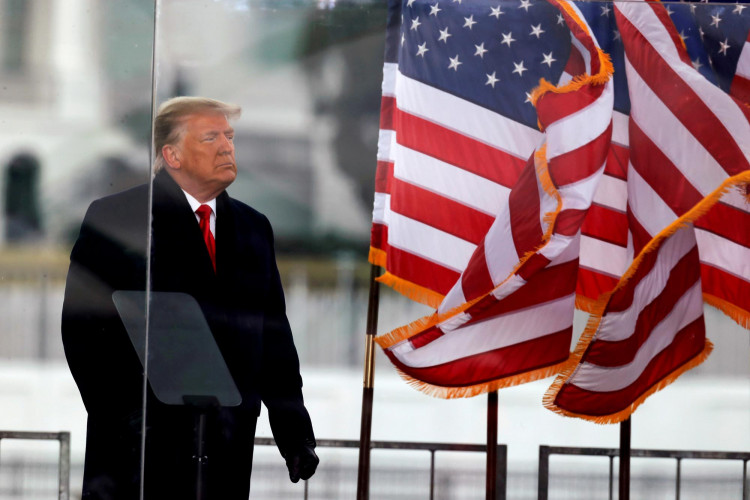An independent panel investigating the July 13 assassination attempt on former President Donald Trump at a rally in Butler, Pennsylvania, has delivered a scathing assessment of the U.S. Secret Service.
The report, commissioned by Homeland Security Secretary Alejandro Mayorkas, identifies significant lapses in communication, critical thinking, and preparedness, calling the agency "bureaucratic, complacent, and static." The panel's findings suggest that these failures contributed to the deadly incident in which a gunman opened fire, injuring Trump and killing a man in the crowd.
The 51-page report, released Thursday, outlines a timeline of the day's events, detailing how multiple warnings about the gunman, Thomas Crooks, were either delayed or ignored. Despite receiving information about Crooks' suspicious behavior over 20 minutes before the shooting, Secret Service agents failed to communicate this intelligence effectively. This critical communication breakdown left Trump vulnerable, according to the report.
"This was a unique demonstration of the United States' ability to target facilities that our adversaries seek to keep out of reach, no matter how deeply buried underground, hardened, or fortified," said Defense Secretary Lloyd Austin, after a related attack.
The panel, which included former Homeland Security Secretary Janet Napolitano and former Acting Attorney General Mark Filip, noted that while the agents on Trump's detail showed bravery in the moment, "bravery and selflessness alone, no matter how honorable, are insufficient to discharge the Secret Service's no-fail protective mission."
According to the report, the gunman managed to evade detection for hours, eventually positioning himself on the roof of a building near the rally stage. Despite multiple alerts about his presence, the agents tasked with protecting Trump were not informed in time to act before he opened fire. The gunman fired eight shots at Trump before he was neutralized by a Secret Service agent.
The report highlighted a lack of proactive measures, criticizing the agency for failing to secure the roof of the AGR building, which had a clear line of sight to the rally stage. The report also noted the malfunctioning of drone detection equipment, which could have alerted agents to Crooks' surveillance activity in the area earlier in the day.
"The Secret Service must be the world's leading governmental protective organization," the report emphasized. "The events at Butler on July 13 demonstrate that, currently, it is not."
The report underscores a broader issue within the Secret Service: its failure to adapt to the evolving nature of threats. The agency, the panel concluded, has become too reliant on routine procedures, failing to account for specific and emerging risks faced by high-profile protectees. This formulaic approach was evident in the agency's inability to assess the immediate threat posed by Crooks, despite clear signs of danger.
"The Secret Service has become bureaucratic, complacent, and static even though risks have multiplied and technology has evolved," the report stated. It added that without reform, another incident like the Butler shooting could occur.
The panel's recommendations include improving communication with state and local law enforcement, enhancing drone detection capabilities, and increasing situational awareness at events. Notably, the panel also suggested that the agency narrow its focus to its core mission of protection, rather than dividing resources between protection and law enforcement duties like investigating financial crimes.
Further, the report called for new leadership within the Secret Service, advocating for bringing in outside leaders with fresh perspectives. The panel also recommended ongoing assessments of the agency's security protocols, with a full evaluation of the proposed reforms by October 2025.
The shooting in Butler was not an isolated event. Two months later, a second assassination attempt occurred at Trump's golf course in Florida, where a man armed with a semi-automatic rifle hid for hours before being spotted. The report noted that while this incident was outside its scope, the fact that it happened shortly after the Butler shooting only reinforced the need for urgent reforms within the Secret Service.
In response to the report, the Secret Service acknowledged its shortcomings. Acting Director Ronald Rowe, who took over after former Director Kim Cheatle resigned amid bipartisan criticism, vowed to implement changes. "We will fully consider the panel's recommendations and are taking the actions needed to advance the Secret Service's protection mission," Mayorkas said in a statement.
The agency has already begun making some adjustments. According to a statement from the Secret Service, Trump's security has been enhanced with bullet-resistant shields at outdoor events, and agents are now working more closely with local law enforcement officers.






